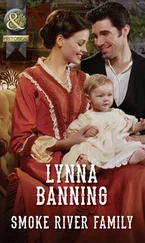“You can’t like two people,” she says at last and flinches at the fear in her voice. “Not like that.”
“Can’t you, Livia? I wouldn’t know.”
He gets up, his knees creaking, finds a bottle of port, almost empty, and pours them each a finger’s depth of wine.
ф
They sit and drink. Her mind has become stuck on the earlier word. “Passion.” Lust , really, if one looks it in the eye. There is something so illicit to the word, Livia finds it hard to let it go. Grendel’s questions have unsettled her. There is, on her lips, that strange tingling that presages Smoke. She is literally a breath away from sinning.
It makes her look at Grendel in renewed awe.
“So you really never feel it?” she asks him. “Not even a hint? That moment just before the Smoke takes hold of you? Like a drug injected into your blood?”
He starts shaking his head, stops.
“Well, perhaps. There are times, you know, quite ordinary moments, when I stumble on the stairs in the belfry, say, and I bump my head, or the neighbourhood children pelt me with garbage for sport, when I think there’s something . Just a hint, see, a buzzing in the skin.” He smiles and blushes, with pleasure. Then his smile wilts. “But of course, I cannot be sure.”
“And you would like to smoke so very much? Even though it’s evil?”
He nods, thoughtfully. “It isn’t evil. It’s human . I’d give everything. For just an hour in the Smoke.”
“Then I have something for you.”
On impulse, before her better judgement can intervene, Livia reaches into her pocket. Collier’s trousers, too large for her, her hand disappearing past its wrist. Three twigs, bent and brittle. She picks one at random and straightens it between her palms.
“Here, Grendel. Smell it.”
“What is it?”
“Sin. Packaged sin. You only have to light it. Who knows, it might just work.”
He nods, dumbfounded, then gets up to search the kitchen for matches. His fingers fail him when he tries to strike a match. Livia can see that he is shaking. She takes the box from his hand and lights the cigarette for him. His inhalation brings a blood-red glow to its tip. He holds the smoke down for as long as he can. The exhalation is a stream of grey, unspent; it curls around Livia’s face and calls to her skin. Her own Smoke is there before she knows it, white like steam. It fills her with something, light and seductive, the feeling a gambler might have the moment he turns over the cards.
“Do you feel it, Grendel?”
A shy smile creeps over his face.
“I do feel a little wicked. Do I look it?”
“Oh, very much.” Emboldened, her skin steaming, Livia proffers the curve of her cheek. “Do you want to kiss me? Go on. Your wife will never know.”
He does, quickly, shyly like a child.
“Oh, you rake!”
Through the open doorway they can hear Thomas groan in his sleep.
“It’ll be our secret,” Livia says, pulling her legs up onto the stool while Grendel continues sucking on the cigarette, staring out the crooked little kitchen window, and not a wisp of Smoke jumps from the pallor of his skin.
ф
Later that night, Livia goes and stands over Thomas’s sleeping body. He is agitated in his sleep, has kicked off the blanket, his rib cage rising and falling underneath his linen shirt.
“I picked up your cigarettes,” she confesses to him, a rustle in the silence of the room, “because I thought there might come a moment when I’d like to sin. I was thinking of Charlie. I was not sure I would know how to touch him, out in the light.”
She lights a second cigarette, crouches down next to him, studies the stain of coal that mars his skin, the stump of ear sticking out of his shorn patch of hair like a mouldy potato.
“Lizzy said it, down in the mine,” she whispers. “You will always be ugly.”
And then, just to try it, the cigarette curling in the corner of her mouth, she lies down next to Thomas and presses her cheek into his shoulder, and thinks of the doorway where he held her and warmed her with his shivering chest.
ф
He wakes long after the cigarette is spent. She herself must have fallen asleep, for he has turned and is facing her now, his eyes aglitter in the dark. Livia finds that she is crying.
“I hate you. I hate everything you stand for. I hate what I find of you in myself.”
He is unmoved by her words, knows it all already, has read it in her Smoke.
“Hold me,” he says and she does, cheek flush with cheek, and the stump of his ear level with her mouth.
In the morning they roll apart without words and get ready to meet Charlie.
ф
It is their fourth morning in London. The twelfth of January, the day of her mother’s delivery. A day wet and raw. Charlie does not come. They stand on the market square morning to dusk, stamping their feet, cold, guilty, calling his name.
“The Tobacco Dock at midnight,” Livia says when she can no longer bear their silence. “Charlie knows we will go. He might meet us there.”
Thomas does not answer. He flinches when she reaches for his arm.
What frightens her most is just how easy it is to picture Charlie dead.
He hires us in La Rochelle. A whole ship’s crew, right off the deck of our previous berth, the Lorelei , which is going into dry dock for repairs. Captain van Huysmans: a Dutchman of good repute. He comes personally, a fisherman rows him over; shakes hands with our own captain then explains his terms. There isn’t much to it, a Channel crossing, there and back. Good money for a few days’ work. There’s only one condition: no landfall for us, we are to transfer straight onto the Haarlem . The men mutter, more than half of them decline. After weeks at sea we are all weary, longing for a bath, a drink, a woman, and it seems churlish somehow, secretive, to whisk us away within sight of the harbour. Those of us who agree transfer to the Haarlem in dinghies that very night. Herring rise all around us, feeding in the light of the three-quarter moon.
The Haarlem is a big steamer, built for the open ocean and its generous swell. The icy, crabby water of the Channel seems to suit it less. She lies twitchy in the waters. At dawn we run into a freezing mist and slow to a crawl. We can’t see a thing. The hands squat in corners, play cards and dice, then quickly put the games away when the captain draws near.
He is everywhere. If I was captain with a nice, cozy cabin, I would stay there the whole journey. Lie in bed in my fancy uniform and holler for the cabin boy to fetch more food. Not so Captain van Huysmans. All night, he has haunted the deck. Going by his complexion, he must have spent time in the tropics: the pallor of freshly peeled skin, still sunburnt in the hairline. No doubt his arse is lily-white.
An odd duck, our captain. Restless, prone to nightmares when he sleeps. Fond of music, it would seem, of singing, but in some strange sour-toned manner that is hard to credit as joy. A well-behaved man, fastidious even. Most captains have one sort of manner when they deal with shipowners and quite another once they are at sea: a swear word here, a gust of Smoke there, a dirty joke. Not so van Huysmans. Stiff as a plank. A chubby man, but his heart is starched.
I complain to the cabin boy about it. Poppy. God knows how he came by the name. Poppy is a fellow of fourteen; this is his third voyage. A wide-eyed sort. The whole world is new to him. Looks up to all the sailors. I am a hero to him because at the age of forty-three I have managed to be promoted to the dizzying height of first mate.
“Our captain wants to be a gentleman,” I say to Poppy, watching van Huysmans mince around the deck.
Читать дальше












